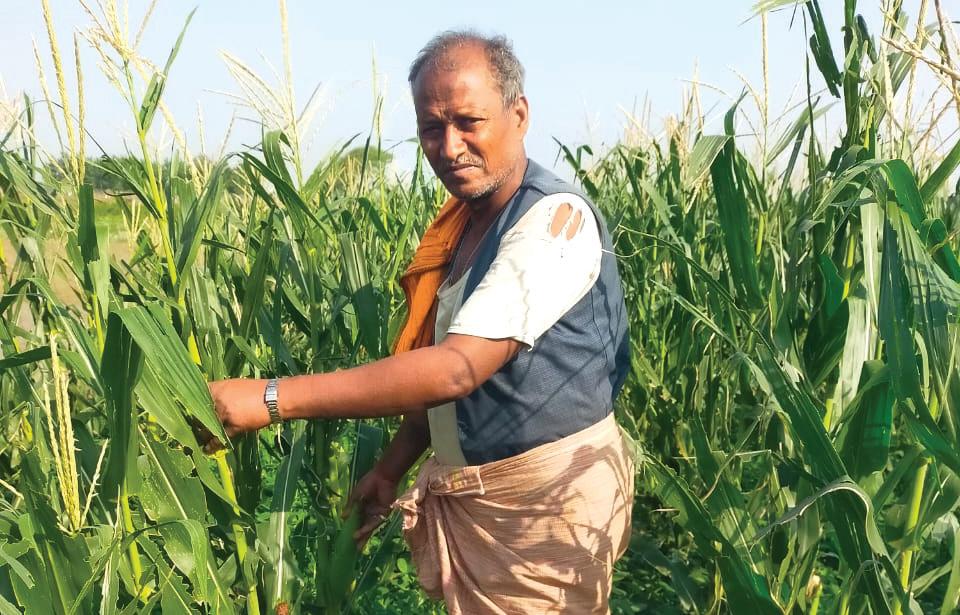Prøve GULL - Gratis
LOST IN MAIZE
Down To Earth
|June 16, 2025
Ethanol-blending programme and its spiralling impacts on food inflation, nutrition availability
-

IN AN unpredictable turn of events, India, the breadbasket of maize for Asian countries like Bangladesh, Nepal, Malaysia and Vietnam, found itself scouring global markets for the high-protein grain last year. In 2024, the country imported 0.9 million tonnes of maize—a mammoth 7,940 per cent more than what it imported in 2023, as per data with Union Ministry of Commerce and Industry. The figure is, in fact, much more than the combined import of maize in the last seven years. The culprit was not weather anomaly or pest attack—but diversion of maize for ethanol production, say industry insiders.
Poultry and cattle farmers and the feed industry, already squeezed by volatile soymeal prices and an avian influenza outbreak, found themselves bidding for maize against ethanol distilleries. And they lost. Energy security took precedence over other priorities, quite literally fuelling the tank and starving the trough.
During the initial years after the National Policy on Biofuels was rolled out in 2018, molasses were the main feedstock of ethanol. In fact, until ethanol supply year (ESY) 2021-22 (November 2021 to October 2022), maize was not used as a feedstock. Then in ESY 2022-23, some 315 million litres of ethanol was produced from maize alone, which increased to a massive 2.86 billion litres in ESY 2023-24. That year, ethanol from maize accounted for 42 per cent of the total ethanol produced. Poultry and cattle feed industry, which consumes 60-70 per cent of the maize produced in the country, was the worst hit.
Denne historien er fra June 16, 2025-utgaven av Down To Earth.
Abonner på Magzter GOLD for å få tilgang til tusenvis av kuraterte premiumhistorier og over 9000 magasiner og aviser.
Allerede abonnent? Logg på
FLERE HISTORIER FRA Down To Earth

Down To Earth
JINALI MODY - ENTREPRENEUR
In September 2025, UN Environment Programme announced Mumbai-based Jinali Mody, founder of material-science startup Banofi Leather, as a Young Champion of the Earth.
2 mins
January 01, 2026

Down To Earth
IT'S AN ENDLESS BATTLE
A decade spent tackling waste still feels vanishingly small
2 mins
January 01, 2026

Down To Earth
'NUMB, AND UNABLE TO ACT
As disasters grow more frequent, I find myself wondering how long I can continue living here, waiting for the next storm
2 mins
January 01, 2026

Down To Earth
SAJANA SAJEEVAN - CRICKETER
In April 2024, Sajana Sajeevan got her maiden call up to the national women's cricket team on the back of a 12-year domestic career that began in the paddy fields of Wayanad, Kerala.
4 mins
January 01, 2026

Down To Earth
NILA MADHAB PANDA - FILMMAKER
Few storytellers bring dramatic despair of ecological loss to the big screen like Nila Madhab Panda. The national-award winning filmmaker often makes nature his central character, be it in his 2017 film Kadvi Hawa or in the 2023 web series The Jengaburu Curse.
4 mins
January 01, 2026

Down To Earth
CHETAN SINGH SOLANKI: SCIENTIST | SOCIAL ENTREPRENEUR
For the past five years, Chetan Singh Solanki has been on a singular journey.
2 mins
January 01, 2026

Down To Earth
ʻLIVING SLOWLY, RELUCTANTLY
The pleasures and burdens of attempting a sustainable life in a fast-moving world
2 mins
January 01, 2026

Down To Earth
KIRAN RAO
Filmmaker and producer Kiran Rao has mastered the art of mainstreaming social commentary, as seen in her early films like Dhobi Ghat and more recently in Laapataa Ladies and Humans in the Loop.
4 mins
January 01, 2026

Down To Earth
I SEE THE RISE OF DEFENDERS
When a species disappears from a land, the loss extends far beyond the species itself.
2 mins
January 01, 2026

Down To Earth
MANISH MEHROTRA - CHEF | RESTAURATEUR
Manish Mehrotra is globally recognised for his innovative approach to preserving India's culinary heritage.
4 mins
January 01, 2026
Listen
Translate
Change font size

